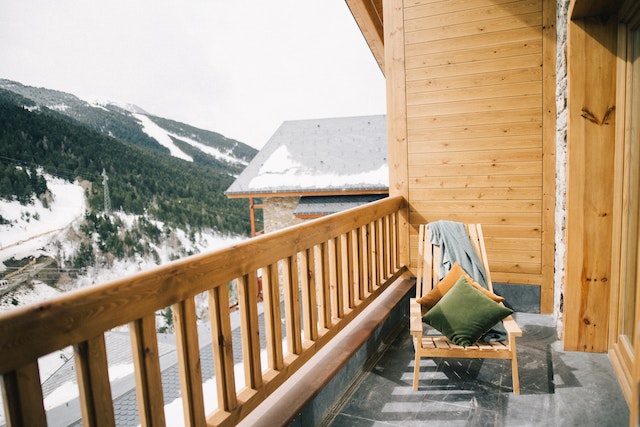|
Every time you take a vacation, you might ponder whether the moment is right to purchase a second house. Buying a vacation home can be a wise investment if you already have a primary residence. You can have a definite vacation site every year and make some additional money by renting out your home. Owning a second home gives you the opportunity to unwind in a setting that replicates your primary residence while escaping the daily grind. But purchasing a vacation home is a significant financial choice that needs serious thought and preparation. So don't forget to research things people wish they knew before buying a house. It's important to take the time to carefully consider several aspects to make sure you make a decision that will result in years of delight. 7 Things to Consider Before Buying a Vacation Home Are the ocean's salty winds calling to you? Or are the majesty of the mountains and the balsam-scented pines whispering softly in your ear? Even if buying a vacation home may seem like a fantasy, it's a significant choice that requires careful thought. But when is the best tie to buy a home? Before you spend your hard-earned money or sign on the dotted line for that dream of a lifetime vacation, there are a few things to think about first, regardless of the type of holiday destination playing in your head like a non-stop loop. Are mountains and the balsam-scented pines pulling you towards adventure or relaxation? Location Your future vacation home's location is one of the most important factors to consider. It should be in an area you want to visit frequently. Consider the activities you enjoy while on vacation, such as skiing, hiking, or beachcombing, and look for a property that is close to these activities. Additionally, consider the accessibility of the location, including transportation options, distance from your primary residence, and availability of amenities and services. One of the most crucial things to consider when buying a vacation home is its location. Budget Before buying a vacation house, it's essential to consider your budget. Determine how much you can afford to spend on a property, including the down payment, closing costs, and ongoing expenses such as property taxes, insurance, and maintenance. Keep in mind that owning a vacation home may come with additional costs, such as HOA fees, property management fees, and utilities. A good rule of thumb is to ensure that your total monthly expenses for the vacation home do not exceed 10% of your monthly income. Property Type Holiday homes come in various styles, including single-family homes, condos, townhouses, and cabins. Each sort of property has a unique set of benefits and drawbacks. A single-family home, for instance, can provide more space and solitude, whereas a condo might provide amenities like a gym or pool. Think about the kind of property that best satisfies your requirements and tastes. Therefore, experts from U. Santini Moving and Storage NYC advise considering the property's resale worth and the local market's demand for properties of that kind. You might not end up selling your vacation home, but it's always good to think a few steps ahead. Consider the type of property that best suits your needs and desires. Financing Options
Financing a vacation home may be more challenging than financing a primary residence. Lenders typically require a larger down payment, higher credit score, and stricter underwriting standards for vacation home purchases. Research your financing options, including conventional loans, FHA loans, and cash purchases, to determine which option is best for you. Additionally, consider the interest rates and loan terms to determine the long-term affordability of the vacation home. If you are a senior, you can find some home-buying tips for seniors that will also help you. Maintenance Vacation homes require ongoing maintenance to keep them in good condition, especially if they are left vacant for extended periods. Consider the property's maintenance requirements, such as landscaping, cleaning, and repairs. So before buying a vacation home, make a list of all the things you would need to take care of. Determine whether you will handle the maintenance yourself or hire a property management company to handle it for you. Keep in mind that maintenance costs can add up quickly, so it's important to factor them into your budget. Rental Income If you plan on renting out your vacation house to offset expenses, research the rental market in the area to determine the potential rental income. Consider the rental demand during peak seasons and any regulations or restrictions on short-term rentals in the area. Keep in mind that managing a rental property can be time-consuming and may require the assistance of a property management company. It's essential to factor in the rental income when determining the affordability of the vacation home. Also, if you are, for example, buying a second home in Sunset Park, Brooklyn, you might want to secure unit for your items so that they are safe while you're renting the property. Tax Implications Owning a vacation home may have tax implications, including property, income, and capital gains taxes. Consult with a tax professional to determine the tax implications of owning a vacation home and how to maximize your tax benefits. Some tax benefits may include deducting mortgage interest, property taxes, and rental expenses. Conclusion Buying a vacation home can be a terrific investment for people who enjoy traveling and desire a second house in their preferred location. Take the time to carefully consider and weigh each of these issues before deciding whether to buy a vacation property to be sure you are making a sensible investment. Making an informed decision can be aided by speaking with a real estate agent knowledgeable about the neighborhood and market. Ultimately, choosing a vacation house should be a deliberate and well-thought-out process. You may make a good decision that will provide you with many years of fun and relaxation in your little corner of paradise by taking the time to analyze all of the relevant elements.
0 Comments
Your comment will be posted after it is approved.
Leave a Reply. |
AuthorJason Gelios is a Husband and Father. After that, a Top Producing REALTOR®, Author of the books 'Think like a REALTOR®' and 'Beating The Force Of Average', Creator of The AskJasonGelios Real Estate Show and Expert Media Contributor to media outlets across the country. Archives
July 2024
Categories |





 RSS Feed
RSS Feed